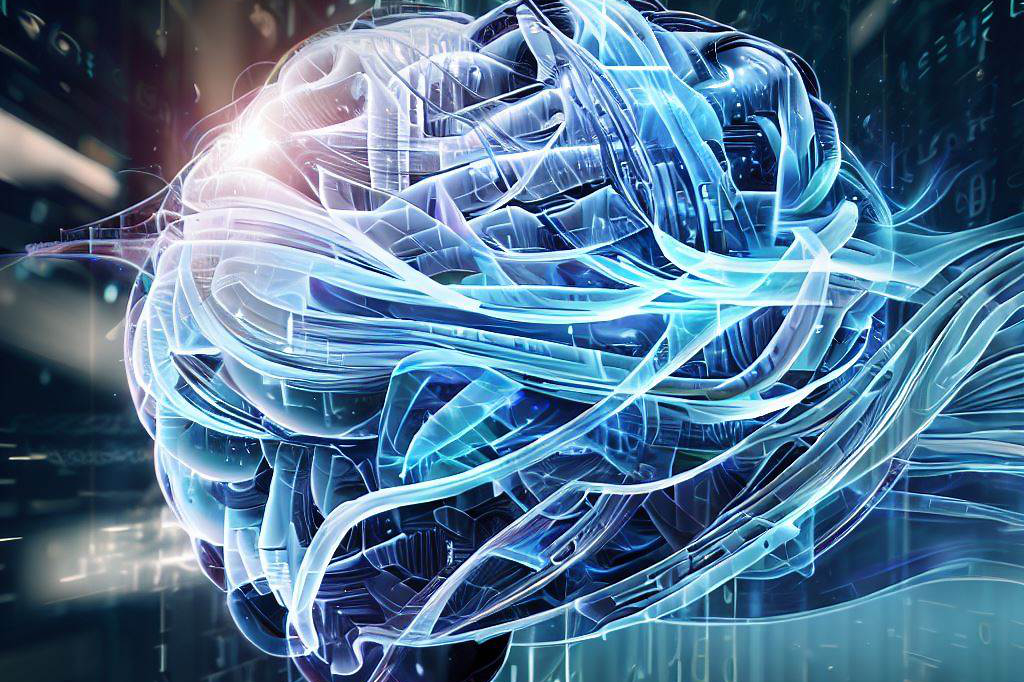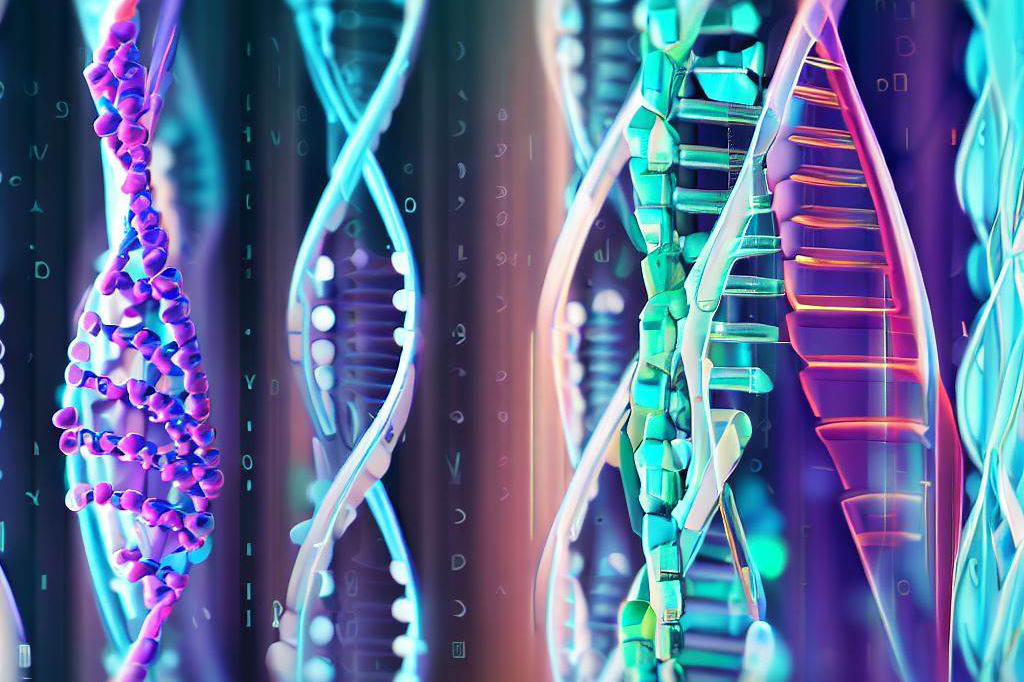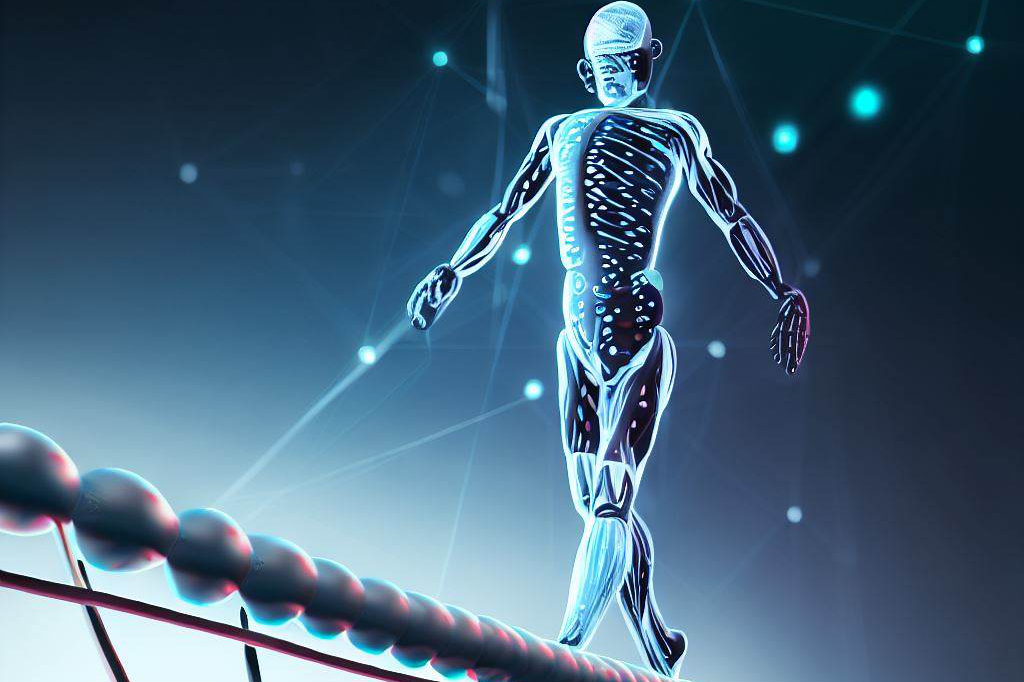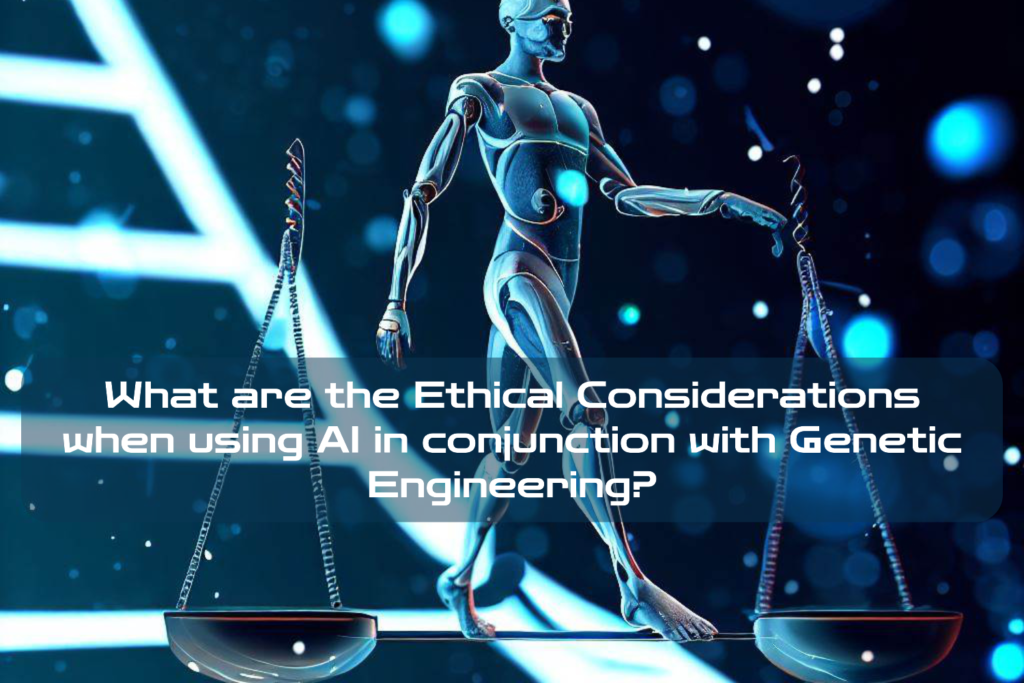The Ethical Tapestry: Navigating the Intersection of AI and Genetic Engineering
In the realm of scientific progress, two powerful forces have emerged — Artificial Intelligence (AI) and genetic engineering.
AI refers to the development of computer systems capable of performing tasks that typically require human intelligence, such as learning, problem-solving, and decision-making. On the other hand, genetic engineering involves manipulating an organism’s genetic material to alter its characteristics or introduce new traits.
The integration of AI and genetic engineering has seen remarkable growth in recent years. AI’s ability to analyze vast amounts of data combined with its capacity to learn and adapt makes it an indispensable tool in advancing genetic research and engineering.
By harnessing the power of AI algorithms, scientists can identify patterns in DNA sequences, predict gene function, optimize laboratory processes, or even design new organisms. However, as this integration progresses rapidly, it becomes crucial to address the ethical considerations that arise from combining these two fields.
The implications for individuals and society at large cannot be overlooked. Ethical considerations play a pivotal role in ensuring responsible use and equitable outcomes when utilizing AI in conjunction with genetic engineering.
Definition of AI and Genetic Engineering

Before delving deeper into the ethical concerns surrounding the amalgamation of AI and genetic engineering, it is crucial to establish clear definitions for both terms.
Artificial Intelligence (AI) encompasses various technologies that enable machines to simulate human intelligence traits such as learning from experience or understanding natural language. Machine Learning (ML) is a subset of AI where computer systems learn from data without explicit programming instructions.
In contrast, genetic engineering involves manipulating an organism’s genes using biotechnology techniques like gene editing or gene insertion/removal. It allows scientists to modify an organism’s DNA sequence or introduce foreign genes into it with the aim of obtaining desirable characteristics or enhancing certain traits.
Growing Integration of AI and Genetic Engineering

The integration of AI and genetic engineering has gained significant momentum, enabling groundbreaking advancements in the field. Various sectors, including healthcare, agriculture, and environmental conservation, have witnessed the potential synergy between these disciplines.
In healthcare, AI assists in genetic analysis by identifying disease-causing genes or predicting an individual’s susceptibility to certain conditions. This enables earlier diagnosis and personalized treatment options.
For instance, AI algorithms can analyze massive genomic datasets to identify potential cancer biomarkers or predict patient responses to specific drugs.
In agriculture, the combination of AI and genetic engineering facilitates crop improvement through precision breeding techniques.
By analyzing plant genomes with AI algorithms, scientists can accelerate the development of drought-resistant crops or enhance nutritional content. This approach has the potential to address global food security challenges while reducing reliance on chemical inputs.
Importance of Ethical Considerations in this Field

As the integration of AI and genetic engineering continues to advance at an astonishing pace, it is essential to recognize that ethical considerations are paramount for responsible progress and decision-making in this field.
Firstly, ethical considerations ensure privacy and data protection when dealing with personal genetic information.
The collection and storage of individuals’ DNA profiles raise concerns about data security breaches or unauthorized access by third parties. Maintaining strict confidentiality measures is crucial to safeguarding sensitive information.
Secondly, equity must be a priority when employing AI-driven genetic technologies. Access disparities could exacerbate existing social inequalities if certain populations are denied equal opportunities for beneficial genome editing interventions or advanced diagnostics based on economic status or geographic location.
Ethical frameworks must ensure that these advancements are accessible to all individuals, regardless of their socio-economic background.
Ethical considerations related to AI in genetic engineering
Privacy and data protection: Safeguarding personal genetic data
In the realm of AI-driven genetic engineering, the issue of privacy and data protection looms large. The collection and storage of personal genetic data raises concerns about potential misuse or unauthorized access.
With advancements in AI technology, the ability to analyze vast amounts of genomic information for scientific research or medical purposes is expanding rapidly. However, this progress comes with a responsibility to ensure that individuals’ privacy is respected and their data remains confidential.
To address these concerns, stringent protocols must be established to safeguard personal genetic information. Encryption and secure storage methods should be employed to protect against unauthorized access or hacking attempts.
Additionally, there must be clear guidelines on who can access this sensitive information and under what circumstances. Obtaining explicit consent from individuals before collecting or using their genetic data is vital, ensuring they have control over how it is used and shared.
Equity and access to genetic technologies: Bridging the gap
Advancements in AI-driven genetic engineering technology have the potential to revolutionize healthcare outcomes by providing personalized treatments tailored to an individual’s unique genomic makeup. However, an ethical challenge arises when considering disparities in access to these cutting-edge tools. Without equitable distribution, only a select few could benefit from advancements, leaving behind underserved populations.
Addressing this issue requires a concerted effort from policymakers, researchers, and healthcare providers. Measures must be implemented to ensure that everyone has equal opportunities when it comes to accessing AI-driven genetic engineering tools.
This involves raising awareness about these technologies among communities that may not have easy access to or knowledge about them. Collaboration between public institutions and private organizations can also play a vital role in making these tools more accessible through affordable pricing schemes or subsidies for underprivileged communities.
Informed consent and autonomy: Empowering individuals
When utilizing AI in genetic engineering processes, it is paramount to uphold individuals’ rights to informed consent and autonomy. Genetic modifications have far-reaching implications, both on an individual and societal level, making it crucial for people to understand the potential risks, benefits, and consequences involved. To ensure informed consent, comprehensive information should be provided in a clear and understandable manner.
This includes outlining the purpose of genetic modifications, potential outcomes or uncertainties, and any associated risks. Individuals should also have the freedom to decide whether they want to undergo AI-driven genetic alterations without coercion or undue influence.
Moreover, it is essential to establish frameworks that protect individuals from any unintended consequences arising from AI applications in genetic engineering. Regular monitoring and evaluations of these technologies are necessary to identify potential risks or unforeseen ethical dilemmas promptly.
By prioritizing privacy protections, equitable access to technologies, and preserving individual autonomy through informed consent, we can navigate the ethical considerations surrounding AI in genetic engineering more conscientiously. These steps lay the foundation for a society that effectively leverages technological advancements while upholding vital ethical principles.
Transparency and Explainability: Understanding the Inner Workings of AI Algorithms

Peering Behind the Digital Curtain of Genetic Engineering
When AI algorithms are employed in the field of genetic engineering, there is a pressing ethical consideration regarding their decision-making processes. Unlike traditional human decision-making, AI operates through complex algorithms that may not be readily understandable to humans.
To ensure transparency and facilitate trust, it becomes essential to unravel the inner workings of these algorithms. By providing clear explanations for how AI algorithms arrive at certain outcomes, researchers can demystify the black box and enable stakeholders to scrutinize and comprehend the decision-making process.
To address this ethical concern, efforts must be made to develop explainable AI (XAI) methods specifically tailored for genetic engineering applications. These methods aim to provide insights into how AI algorithms analyze genetic data, identify patterns, and make decisions.
Techniques such as rule-based models, interpretable machine learning models, or visualizations can shed light on the reasoning behind specific actions taken by AI systems. By embracing transparency and explainability in genetic engineering with AI integration, we empower stakeholders with an understanding of why certain decisions are made while also minimizing potential fears associated with perceived bias or manipulation.
Fairness and Bias Mitigation: Ensuring Equality Amidst Genetic Diversity

Nurturing Equitable Outcomes in a Tapestry of Genetic Variation
As genetic engineering powered by AI has expanded its reach, concerns about fairness and bias within these systems have come to the forefront.
Biases can inadvertently arise from biased training data or algorithmic design that may perpetuate existing inequalities across diverse populations. Thus, it is crucial to address and mitigate the biases embedded in AI algorithms.
To achieve fairness in genetic engineering processes involving AI, researchers should adopt strategies such as carefully curating training datasets representative of diverse populations. Moreover, continuous monitoring should be implemented throughout the algorithm development stages to identify and rectify any biases that emerge.
By driving inclusivity and diversity in the data used to train AI systems, we can aim for equitable outcomes that do not favor specific genetic traits or discriminate against certain populations. Additionally, fairness can be further promoted by incorporating ethical guidelines and standards into the development of AI algorithms.
These guidelines should prioritize equal treatment across diverse populations, ensuring that genetic engineering technologies do not exacerbate existing disparities or create new ones. By proactively addressing fairness and bias mitigation concerns, we can shape a future where AI-driven genetic engineering is a force for positive change without compromising social justice.
Accountability and Responsibility: Navigating Ethical Boundaries in Genetic Engineering

Charting an Ethical Course Amidst Uncharted Genetic Territories
The integration of AI with genetic engineering brings forth profound ethical considerations regarding accountability and responsibility. As AI-driven systems make decisions that have direct implications for individuals’ genetics, it becomes crucial to define who should be held accountable for the outcomes.
Determining responsibility in this context is multifaceted. It entails identifying who owns the algorithms, datasets, and decision-making processes within these systems.
Additionally, it necessitates establishing clear lines of accountability between researchers, developers, policymakers, healthcare providers, and ultimately those affected directly or indirectly by the outcomes of AI-driven genetic engineering. Implementing frameworks for accountability involves defining ethical boundaries within which these technologies must operate.
Regulatory bodies should enforce transparency requirements while outlining responsibilities to ensure adherence to established standards. By fostering a culture of responsible innovation rooted in ethics and societal well-being, we can navigate the uncharted territories of genetic engineering with confidence.
Final Thoughts
As AI increasingly intertwines with genetic engineering practices, it is imperative to pay heed to the ethical considerations at play. Transparency and explainability allow us to understand how AI algorithms make decisions in this context while promoting trust among stakeholders.
Fairness and bias mitigation ensure equality and inclusivity, safeguarding against perpetuating existing disparities. Accountability and responsibility establish ethical boundaries, empowering us to navigate these uncharted genetic territories responsibly.
By actively addressing these ethical considerations, we can harness the transformative potential of AI-driven genetic engineering while upholding our commitment to a more equitable future. Through collaboration between researchers, policymakers, and society at large, we can forge a path where the integration of AI and genetic engineering leads to improved healthcare outcomes for all, fostering a world where technology and ethics coexist harmoniously.

C M, a seasoned editor, journalist, and consultant, is deeply fascinated by the convergence of technology, space, and the future of humanity.
With a particular interest in transhumanism, futurology, and the philosophical and ethical dimensions of these domains, C M serves as the lead contributor to TranscendSphere and SpaceSpotlight.
When not penning insightful articles on these rapidly evolving fields, C M indulges in their love for podcasts and books, proudly embracing their status as a ‘Happy Nerd Extraordinaire!’





